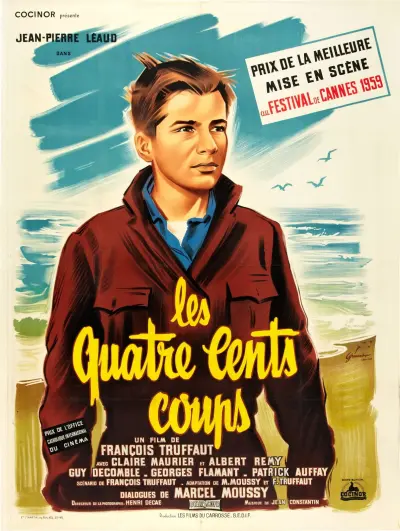
"Les Quatre Cents Coups," or "The 400 Blows," is an extraordinary film that delves into the complexities of adolescence, rebellion, and the pursuit of identity. Directed by François Truffaut, it stands as a significant work in the French New Wave, a movement that profoundly changed cinema in the late 1950s and 1960s.
The narrative centers on Antoine Doinel, a young boy in Paris, as he navigates the challenges of growing up. Misunderstood by his parents and facing adversity at school, Antoine's life is marked by a series of misfortunes. His journey of plagiarism accusations, confronting the truth about his stepfather, and his stay at an observation center for troubled youths culminates in a symbolic escape to the ocean, representing his quest for freedom and relief from life's constraints.
The film's themes are deeply influenced by Truffaut’s own childhood, mirroring his battles with authority figures and solace found in cinema. It serves as an exposé on the harsh treatment of juvenile offenders in France during that period, underscoring the critical need for empathy and understanding towards youth. Additionally, it reflects Truffaut's own experiences with familial estrangement and his refuge in movies.
One of the standout features of "The 400 Blows" is its authentic portrayal of adolescence. The film addresses universal aspects of teenage life, such as alienation, rebellion, and sexual curiosity. Truffaut's decision to allow his young actor to deliver largely unscripted dialogue lends a unique authenticity to the film, making it relatable and reflective of the audience's own childhood experiences.
In terms of its cinematic style, "The 400 Blows" is noted for its realistic approach, achieved through black and white film, on-location shooting, and the use of handheld cameras. The film pays homage to past styles, particularly Jean Renoir and Italian neo-realism, while introducing a novel, dynamic approach. This fusion of traditional and innovative techniques positions it as a groundbreaking work in film history.
"The 400 Blows" explores themes like the impact of parenting, the desire for freedom, the awkwardness of emerging sexuality, and the volatility of a young, curious mind. These elements, coupled with Antoine's escalating misdeeds, vividly depict the turbulence of youth. The film's treatment of topics like troubled adolescence and the shortcomings of institutional systems like schools contributes to its lasting relevance.
The film's most significant contribution to viewers is its final shot – a freeze-frame zoom-in on Antoine's face as he reaches the ocean. This powerful moment breaks the fourth wall, drawing the viewer into Antoine's world and his dilemma, and leaving an open-ended question about his future. This scene encapsulates the film's sincerity about childhood and coming of age.
In summary, "Les Quatre Cents Coups" is more than a film; it's a profound exploration of youth, freedom, and the intricacies of maturation. Its blend of personal narrative, innovative filmmaking, and timeless themes establish it as an enduring masterpiece, continuing to resonate with diverse audiences.

